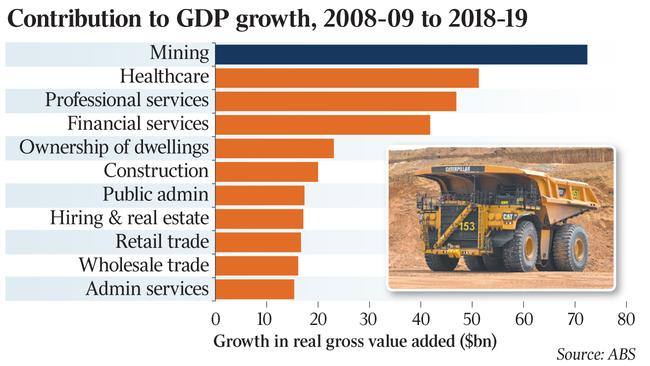Energy policy key in big business’s call to cut power prices
Uncompetitive power prices put pressure on companies sourcing long-term energy contracts: Minerals Council of Australia.

The Minerals Council of Australia has backed investment in “low-emissions technologies” and said uncompetitive power prices were putting pressure on companies sourcing long-term energy contracts.
In a pre-budget submission, the peak mining body also endorses a “technology neutral” approach to energy policy and calls for nuclear options to be considered by the federal government.
The Australian Industry Group is also pushing for the government to extend the Australian Renewable Energy Agency with “at least a further $3.6bn over 10 years” and update its remit to address transition across major industries.
AiGroup, which says Australia’s climate goals are not “achievable within the current financial envelope”, wants additional funding to boost energy efficiency across the private sector and low-income households and for governments to build “sustainable markets for recovered materials”.
MCA chief executive Tania Constable said the minerals industry acknowledged that “sustained global action” was required to “reduce the risks of human-induced climate change”.
Ms Constable said the sector supported a “transformation to a low-emissions global economy”.
“Accelerating investment in low-emissions technologies, such as carbon capture and storage, is imperative to meet the Paris agreement’s climate goals,” Ms Constable told The Australian.
She pointed to the government’s technology investment road map, to be released in coming months, as a way forward in “seriously exploring the technology options which can deliver significantly lower greenhouse gas emissions”.
“The global transition to low-emissions technologies — including solar, wind, batteries, gas, advanced coal and nuclear energy — depends on the metals and raw materials provided by the minerals sector,” she said.
“A thriving minerals sector focused on effective and pragmatic climate action is essential to mobilise the solutions required to address climate change.”
The MCA submission said the supply of reliable and affordable energy was “critical for Australia’s resources sector, particularly as Australia’s electricity sector reduces its emissions intensity”.
“Maintaining an internationally competitive power supply is important for the commercial viability of existing new mining and mineral processing projects,” it stated. “The sector is responsible for 15 per cent of Australia’s total electricity consumption.
“Recently, several east coast companies have experienced difficulty sourcing long-term energy contracts with generators and are often required to pay significantly higher rates in order to secure electricity supplies. This reflects Australia has lost its competitive advantage of low cost energy.
“Australia has moved from having some of the lowest energy costs to some of the highest in the developed world.”
In its pre-budget submission, the AiGroup said existing policies may “underdeliver expectations” on achieving climate targets.
“All countries, including Australia, will need to update and lift the ambition of their nationally determined contributions under the Paris agreement to close the gap with the Paris goals; and longer-term transition will require investments well beyond the scope of the fund,” the AiGroup said.
“Policy structures that drive private demand for abatement can ease the requirement for public funding, though they need to be designed to maintain trade competitiveness, social equity and other needs. In the absence of such policies the government will need to commit substantial additional funds.”
The AiGroup, which represents more than 60,000 businesses, has also urged the government to restore permanent migration levels to 190,000 places a year, with a greater priority given to the skilled migration stream.
“AiGroup was disappointed with the reduction to a maximum of 160,000 in annual permanent migration announced in the budget in May 2019,” it said. “This reduction was not warranted. Nor does it accord with trends in economic or population growth.”



